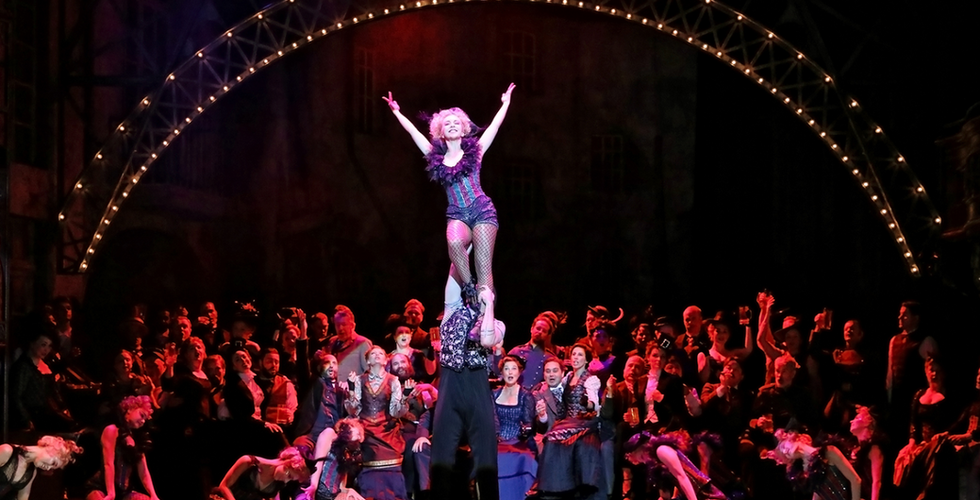Review: Faust at the Joan Sutherland Centre, Sydney Opera House
- Feb 12, 2020
- 4 min read
Review by Priscilla Issa
Sir David McVicar, Scotland’s renowned opera director, has succeeded again! Following on from his triumphant Don Giovanni, Faust is a rousing tale of hypocrisy. The opera ties together the themes of mysticism with realism, and sinful and sexual theatricals with the bourgeois morals of 19th Century France. Based on Goethe’s play-in-verse, Gounod’s emotionally charged masterpiece provides the perfect amount of passion expected of French opera. Soaring and languid melodies that are woven against gloriously chromatic harmonies, and spectacular scenes moving from cathedral to Paris streets to theatre, inject the opera with one-part mysticism and one-part realism. In fact, nearly everything in this production is about ‘balance’. Mephistopheles’s lightness/playfulness is juxtaposed with his darkness/eerie temperament; the devil always offers Faust a choice which will either reveal his capacity for good or pin him as bad; and, Marguerite could choose whether to continue tugging at the heartstrings of her admirer or whether to succumb to lust (and succumb she does). It is this too-ing and fro-ing that is the reason for this opera’s success; audiences want to be able to account for some goodness amidst their bad behaviour, hence the duality of human nature.
Charles Edwards’s set can best be described as ‘impressionistic’; it is how the concept of duality is best conveyed. Scenes of realism (grandiose houses, huge French flags, towering statues) are countered by scenes of surrealism (an enchanted forest, a desolate and dreary prison cell, and candlelit altar); audiences are never provided with certainty. Instead, they can choose whether to live in the stark reality of French life or the absurdist and sickly fantastical world of sex, drugs and whores led by Mephistopheles. The fluctuations from good to bad and back are evident in scenes set in the privacy of the Doctor’s home against those set in the nationalistic post-Franco/Prussian War streets, and scenes with pious, religious overtones - complete with a statute of Jesus, a church organ and candles – against the raucous and saucy Cabaret L’Enfer (The Cabaret of Hell). Paul Constable’s lighting cleverly infuses shades of white and black, and just for a bit of hellish fun throws some red amongst the parlour scenes for some added sauciness. The skilful artistry of the dancers to tackle a can-can in 3/4 time was a brilliant nod to the absurdity of the opera. Choreographer Michael Keegan-Dolan juxtaposes the sleaziness with the structure and precision of the allegorical ballet, complete with pristine white ‘Romantic’ tutus. But, of course, such structure is never set in stone in this weird and wonderful world; the ballet ends in a pregnant Marguerite heaving and belching about, a slew of catcalls and, hilariously, a full-scale orgy.
New-Zealand born star, Teddy Tahu Rhodes, plays Mephistopheles not so much as the devil incarnate, but rather with mischief. At times he cheats at sword fights, at others he wears a crucifix. There are times Mephistopheles looks regal with his long curly hair and there are times where he struts around the stage in sparkly drag. Whether directed to do so, or whether by Tahu Rhodes’s own volition, this constantly fluctuating characterisation is a brilliant choice. The absurdity in the anti-Christ’s depiction is most prominent when Mephistopheles sings his credo (“Le veau d’or”) praising the Golden Calf while standing in front of the crucifix with nothing but an air of nonchalance. Tahu Rhodes’s acting performing is highly convincing! His bellowing and velvety voice, however, seems somewhat out of place given that one would expect to hear more menace and edge in a voice playing the devil. Nevertheless, he managed the dark, lower timbres with effortlessness and finesse – a true bass star!
Irina Lungu played a gloriously delicate and vulnerable Marguerite. The Russian soprano appeared the part to begin the opera – modest, cleanly dressed, lissom. However, as the opera moves forward and as the night wears on, she turns possessed and humiliated as though her decisions to engage in an intimate affair with Faust are not her own. Her shimmering and warm tessitura was perfect for ‘Il était un roi de Thulé’ and the stunning Jewel Song. Her blend with chorus and co-stars was exceptional; she was never overbearing but rather allowed her voice to fit snuggly against Ivan Magrì’s resonant tenor and Tahu Rhodes’s bellow. Most impressive was the final scene. Lungu appeared ethereal and sounded like an angel about to be assumed into heaven with her gorgeous messa di voce and choice of rubato.
The highlight performance was none other than Ivan Magrì’s performance as the lead.
Before reading his biography at interim, it was obvious that this was a voice trained by a great vocalist in the Italian bel canto style. It was no surprise to discover that Magrì had tuition with the brilliant late Luciano Pavarotti. Not everyone can master the high tenor range with brightness and panache. From the opening, “Salut! Ô mon dernier matin!”, we feel the pain that the elderly Faust experiences both in his body and mind; the contrast is an elderly man trapped by physical limitations with a mind pining for youth and lust. In ensemble numbers, his tenor blended beautifully. But it was his soaring Act III - "Salut! Demeure chaste et pure" – that sent audiences into a whirlwind. A mature and technically proficient performance!
Conductor, Lorenzo Passerini, was in absolute control. He convinced the entire cast – orchestra, chorus and principals – to perform with dynamic variation, musicality and riveting emotional contrasts. It is not an overstatement to say that his orchestra’s performance of Gounod’s haunting work is one of Opera Australia’s strongest recent years. Bravo!
Faust runs until 11th March, 2020. Be sure to catch one of McVicar’s greatest staging achievements.
Photo Credit: Prudence Upton
All opinions and thoughts expressed within reviews on Theatre Travels are those of the writer and not of the company at large.




















